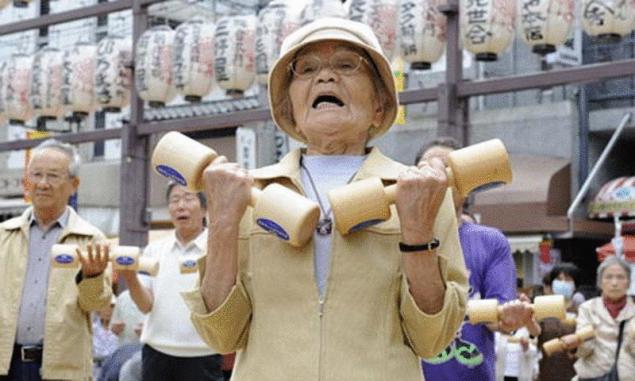568
The age-old system of power — the secret of Japanese longevity

Japanese women don't get fat and do not age. Recently on counters of bookshops, appeared a book by Naomi Moriyama entitled "Japanese women don't get fat and do not age" where you can find some rather interesting ideas.
For example, Naomi noted that in the last 25 years Japanese women lead in life expectancy, which is 86.4 years. Not only women, but Japanese men are readmename in the world in life expectancy due to proper diet.
In the book slightly open the secrets of Japanese longevity, where the author describes the kitchen of your mom, and we have the ability to assess century-old supply system, which allows you to preserve vitality.
So in the kitchen every Japanese hostess, always present: Fish
Seaweed and other sea vegetation products
Vegetables
Soy products
Figure
Fruit
Green tea
In Japan always eat freshly prepared food. Traditional food is fried fish, Cup of rice, cooked vegetables, miso soup, fruit for dessert and green tea.
The Japanese consume nearly 10 percent of total world fish production, although they account for about 2 percent of the population of the globe. Thus, in their diet of Japanese women is a daily dose of omega-3 that explain their longevity. In addition, the diet included 5 times more cruciferous vegetables than we normally consumed.
The main emphasis of Japanese cuisine is on seasonal produce and freshness. On the products indicate not the day of packaging, and time. So the hostess chooses the freshest ingredients.
The Japanese eat small portions, diverse dishes, from childhood accustomed to eat slowly, savoring every bite. Dishes with food three times smaller than the one we use.
The main criteria in cooking. Note that the Japanese women never serve large portions, use a delicate kitchenware
never fully fill the dish, leave free space
each type of product served in a separate bowl
the less dishes, the better
try to emphasize the natural beauty of the product
food should be embellished only slightly
product freshness is the most important thing
Japanese cuisine is easy and quick to prepare. Japanese women are most of the dishes cooking on the stove, where, in addition to the traditional methods use a special pan, which has a hemispherical shape. Japanese women use only high quality vegetable oils and soups made from seasonal vegetables and herbs. Japanese food is not only easy and quickly saturates, and delivers a truly aesthetic pleasure.
The Japanese don't eat bread, replacing it with rice. This fundamental difference in the dietary habits of the peoples of the East and West. Daily eating the bread of refined wheat flour we overload the body with high carbohydrate "fluff" that leads to obesity. It is much wiser to replace the bread with brown or unbleached rice.
In Japan – Breakfast around the head. It encompasses a number of varied and healthy meals and is more like our lunch. Judge for yourself. It consists of green tea; steamed rice; miso soup with green onions and soy tofu (Miso is made by fermenting soybeans, rice, barley, wheat or a mixture of them using a special type of fungi). Breakfast includes leaves of nori seaweed, omelette, eggs or fish. Despite the fact that the portions are very small, they cover the daily requirement of minerals and vitamins.
Sweets and desserts the Japanese don't often eat little by little. There is a special kind of dessert, Vagasi, served with green tea.It consists of rice flour, sweet bean paste, nuts, vegetable gelatin agar-agar, various dried fruits. To give a taste palette adds floral nectar and green tea. Each cupcake is masterfully sculptured with fingertips by skilled craftsmen with a piece of their soul. There are about 25 species of Thetiger, symbolizing seasons. The Japanese say: "Say what Vagasi you ate and I'll tell you what time of year on the street." After all, Vagasi is not just sweets, it is also Art with a capital letter.
Physical activity, exercise and sports are an integral part of the lives of ordinary Japanese who tried to walk, ride bikes, climb stairs or ride in cars. About 40 years ago Japanese researcher Yoshiro Hatano has developed a programme called "10 thousand steps" and which in practice has confirmed that those who walk 10K steps daily, do not suffer from diseases associated with elevated blood pressure, retain a slender and live longer.
source: pokolenie-x.com
Source: /users/1077























